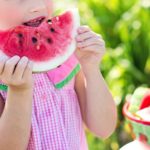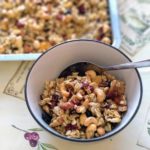Ultra-processed foods at a glance
According to a recent study commissioned by Heart and Stroke Canada, close to 50% of the daily caloric intake of Canadians comes from the consumption of ultra-processed foods. Food processing has been present and helpful for a long time in extending the shelf-life of many foods and in making them more edible and palatable. However, industrialisation has increasingly made processed foods less nutritious (more sugar, fat, salt and less fibre, vitamins and minerals) and a high intake of these foods could have a negative impact on our health.
Definition of ultra-processed foods
But are all packaged foods found at the grocery store necessarily poor in nutrients?
To help you make the distinction between the different types of processed foods, the NOVA food classification system can be used. It is a tool recognised by the FAO (Food and Agriculture Organization) and WHO (Word Health Organization) to classify foods according to their extent of processing.
Unprocessed or minimally processed foods: fresh foods (vegetables and fruits, fresh meat and fish, etc.) and also minimally processed foods that have undergone a small degree of processing (freezing, drying, pasteurization) without the addition of any fats, sugar or salt. They include plain nuts, frozen vegetables and fruits, pulses, milk, plain yogurt, rice, pasta, etc.).
Processed culinary ingredients: Ingredients meant for cooking to make dishes more palatable: oil, salt, sugar, vinegar, etc.
Processed foods: Fresh or minimally processed foods to which culinary ingredients have been added: fresh bread, cheese, canned vegetables, fruits, pulses and fish.
Ultra-processed foods: Foods or substances derived from foods to which ingredients we do not usually have in our pantry (food additives, emulsifiers, hydrogenated oil, modified starch, etc.) have been added. These foods have undergone various levels of processing and are usually ready to eat and very palatable due to their higher content of salt, sugar, fat and other additives. Here are some examples: most commercial frozen meals, bread and dairy products with many additives, sweetened beverages, many breakfast cereals, chips, etc.
It is this last category of foods which is more of a health issue as a high intake of these foods on a regular basis could increase the risk of certain chronic diseases. Hence, here are some tips to minimize the intake of ultra-processed foods.
More emphasis on cooking
By cooking more, we make use of fresher ingredients and we have control on the amount of salt, sugar and fats added to our dishes. Yes, it might be more time-consuming instead of simply buying a frozen meal at the store, but with adequate meal planning, cooking in bigger batches and freezing, it will take you less time.
Ingredients list
To make informed food choices, take a look at the ingredient list. The longer the list (more than four or five ingredients), the more processed the food is!
Beware of food marketing strategies
Be vigilant of nutritional claims such as “low in fat or sugar” written on the packages. A food can be low in fat but high in sugar or food additives, hence the importance of also taking a look at the ingredients list.
To learn more on how to make informed choices at the grocery store and to get tips on meal preparation and planning with tasty and nutritious recipes, feel free to contact our nutritionist. It will be our pleasure to accompany you in your journey to a healthy lifestyle!




